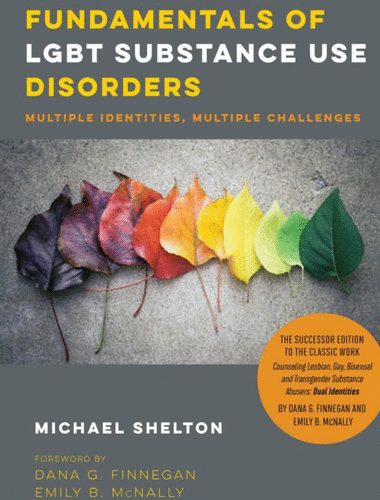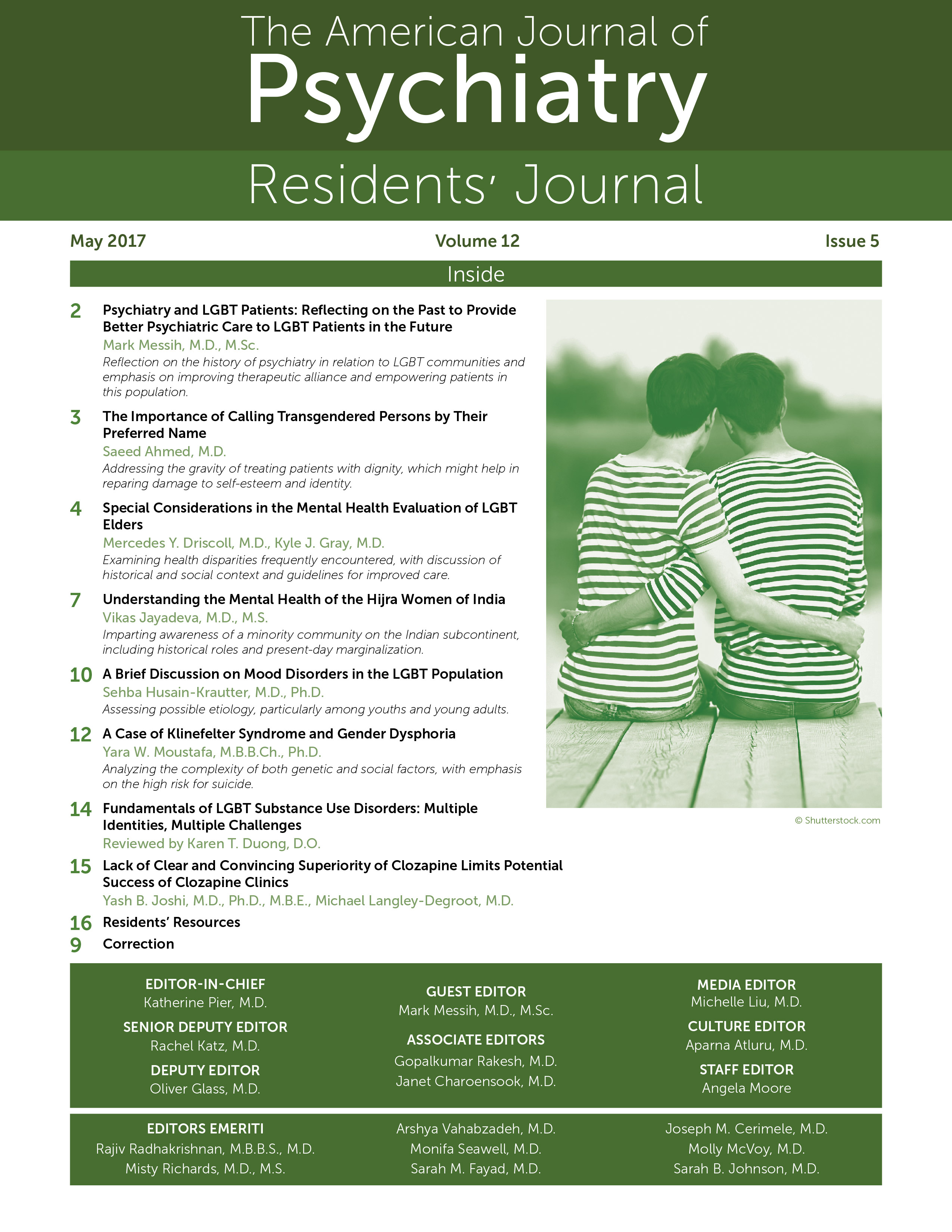Fundamentals of LGBT Substance Use Disorders: Multiple Identities, Multiple Challenges

Studies show that lesbian, gay, bisexual, and transgender (LGBT) individuals face many barriers to treatment and have elevated rates of substance use when compared with the general public (1). Research on substance misuse in the LGBT community has been growing since the American Psychiatric Association (APA) removed homosexuality from the DSM-III in 1973 (2). Since then, the most significant advancement in the field has been the rethinking of why LGBT populations abuse substances and identification of barriers to treatment, specifically prejudice and discrimination.
Fundamentals of LGBT Substance Use Disorders is an expansive and updated third edition of the original literature, Counseling Lesbian, Gay, Bisexual, and Transgender Substance Abusers: Dual Identities, originally published in 1987 (revised and updated in 2002), written by Dana G. Finnegan and Emily B. McNally. In Fundamentals of LGBT Substance Use Disorders, Shelton builds on Finnegan and McNally’s work by adding important concepts outside of addiction studies, such as homophobia, stages of identity development, and interdisciplinary terminology and perspectives, which will help psychiatrists adopt more culturally competent and holistic approaches to LGBT substance misuse treatment and health disparities.
The book consists of 12 chapters, divided into three main sections, beginning with a broad introduction to substance misuse research and LGBT history before specifically discussing each sexual minority group individually. Finally, the author explores the ways in which sexual identity and substance misuse intersect with age, rural locality, and the criminal justice system. Shelton interestingly redefines “family” and how it plays an important role in the patient’s formulation of identity throughout the coming out process, as well as how family dynamics can affect the likelihood of successful recovery outcomes. The author demonstrates in depth, up-to-date knowledge about LGBT mental health, yet also highlights the need for others to continue conducting research. The text also includes great resources in the three appendices concerning assessment of one’s individual or organization’s cultural competency in working with LGBT populations. Included is also an extensive guide to journals that focus on LGBT substance misuse and a listing of all organizations that can assist on issues and education concerning LGBT substance misuse and other LGBT-related topics.
Each chapter is consistent in format with sections such as chapter summary, case study, conclusions, and discussion questions that were most helpful in mastering the material. The discussion questions could be helpful in the setting of residency training didactics or any health care organization striving to assess their readiness and competence in understanding and treating LGBT populations. This book is highly recommended as a resource guide for psychiatrists of all career stages or others in the health care system in providing more culturally competent care to LGBT populations.
1.
2.



